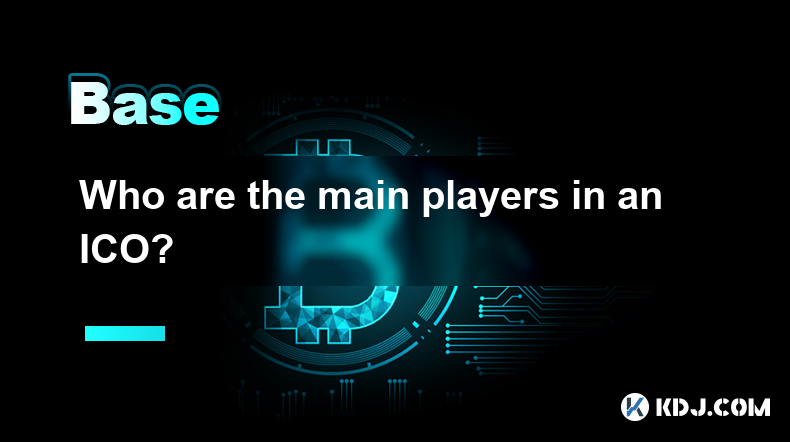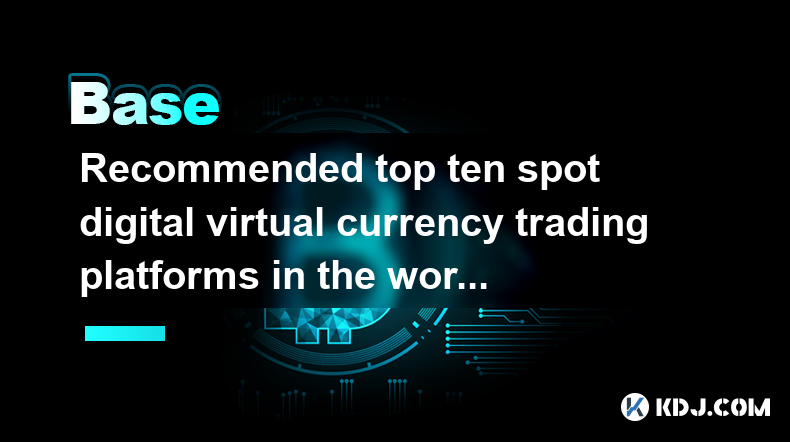-
 Bitcoin
Bitcoin $87,066.3384
2.57% -
 Ethereum
Ethereum $1,575.4052
-0.49% -
 Tether USDt
Tether USDt $1.0000
0.00% -
 XRP
XRP $2.0743
-0.02% -
 BNB
BNB $595.7825
0.83% -
 Solana
Solana $136.4079
-0.38% -
 USDC
USDC $0.9999
-0.01% -
 Dogecoin
Dogecoin $0.1581
2.00% -
 TRON
TRON $0.2461
0.07% -
 Cardano
Cardano $0.6196
0.16% -
 Chainlink
Chainlink $13.0591
-2.01% -
 UNUS SED LEO
UNUS SED LEO $9.1392
-2.02% -
 Avalanche
Avalanche $19.8657
2.37% -
 Stellar
Stellar $0.2514
3.00% -
 Toncoin
Toncoin $2.8936
-3.40% -
 Shiba Inu
Shiba Inu $0.0...01231
-0.36% -
 Sui
Sui $2.1999
4.48% -
 Hedera
Hedera $0.1692
2.08% -
 Bitcoin Cash
Bitcoin Cash $343.9033
2.31% -
 Hyperliquid
Hyperliquid $18.0140
3.65% -
 Polkadot
Polkadot $3.7968
-2.33% -
 Litecoin
Litecoin $77.6904
0.03% -
 Dai
Dai $0.9999
0.00% -
 Bitget Token
Bitget Token $4.4339
0.86% -
 Ethena USDe
Ethena USDe $0.9993
-0.01% -
 Pi
Pi $0.6352
-0.68% -
 Monero
Monero $215.3155
0.42% -
 Uniswap
Uniswap $5.2608
0.42% -
 Pepe
Pepe $0.0...07751
3.06% -
 Aptos
Aptos $4.9488
-1.93%
Who are the main players in an ICO?
ICOs involve founders, investors, legal counsel, marketers, auditors, and exchange platforms, each playing crucial roles in the project's success and regulatory compliance.
Mar 24, 2025 at 05:36 pm

Key Points:
- Project Founders and Team: The core individuals driving the ICO, responsible for the project's vision, development, and execution. Their experience and reputation are crucial.
- Investors (Buyers): Individuals or entities purchasing tokens in exchange for cryptocurrency or fiat currency. Their investment fuels the project's development.
- Legal Advisors: Essential for ensuring compliance with securities laws and regulations, protecting both the project and investors.
- Marketing and Public Relations: Responsible for raising awareness and attracting investors through various channels.
- Auditors and Security Experts: Crucial for verifying the project's code, identifying vulnerabilities, and ensuring the security of the platform.
- Exchange Platforms (Secondary Market): Listings on exchanges allow token holders to trade their tokens after the ICO.
Who are the main players in an ICO?
An Initial Coin Offering (ICO) involves a complex interplay of various key players, each with distinct roles and responsibilities. Understanding these roles is critical for both prospective investors and project teams. Let's delve into the details of each key player:
1. Project Founders and Team:
The heart of any ICO is its founding team. These individuals conceive the project, develop the technology, and ultimately guide its growth. Their experience, track record, and reputation significantly influence investor confidence. A strong team with proven expertise in blockchain technology, business development, and marketing increases the likelihood of success. A detailed whitepaper often showcases the team's qualifications and backgrounds.
2. Investors (Buyers):
Investors are the lifeblood of an ICO. They contribute cryptocurrency or fiat currency in exchange for newly issued tokens. These investors can range from individual retail investors to large institutional funds. Their investment provides the capital necessary for the project's development and implementation. Sophistication in evaluating blockchain projects and understanding the risks involved is crucial for investors.
3. Legal Advisors:
Navigating the complex regulatory landscape of ICOs is paramount. Legal advisors play a critical role in ensuring compliance with securities laws and regulations in relevant jurisdictions. They draft legal documents, advise on regulatory requirements, and help mitigate legal risks for both the project and its investors. Choosing experienced legal counsel specializing in blockchain technology and securities law is essential.
4. Marketing and Public Relations:
Successful ICOs require effective marketing and public relations strategies. This team is responsible for raising awareness of the project, attracting investors, and managing the project's public image. They employ various channels, including social media, online advertising, and press releases, to reach potential investors and build community engagement. The effectiveness of marketing directly impacts the success of the token sale.
5. Auditors and Security Experts:
Security and transparency are paramount in the cryptocurrency world. Independent auditors verify the project's code, identify potential vulnerabilities, and ensure the platform's security. Security experts play a crucial role in protecting the project from hacking attempts and other security breaches. Regular audits and security assessments build investor confidence and protect the integrity of the project.
6. Exchange Platforms (Secondary Market):
Once an ICO concludes, the tokens are often listed on cryptocurrency exchanges. These exchanges provide a platform for token holders to buy, sell, and trade their tokens. The listing on reputable exchanges increases the liquidity and accessibility of the tokens, benefiting both the project and its investors. The choice of exchanges can significantly impact the token's price and trading volume.
7. Underwriters (Sometimes Involved):
Similar to traditional IPOs, some ICOs may utilize underwriters. These are typically financial institutions that assist in the token sale process, providing expertise in marketing, investor relations, and regulatory compliance. They may also help to price the tokens and manage the distribution process. However, underwriters are not always involved in ICOs.
Frequently Asked Questions:
Q: What is the role of a smart contract in an ICO?
A: A smart contract is a self-executing contract with the terms of the agreement between buyer and seller being directly written into lines of code. It automates the token distribution process to investors once they complete their purchase.
Q: What are the risks associated with investing in an ICO?
A: ICOs are inherently risky investments. There's a high chance of losing your entire investment due to project failure, regulatory issues, security breaches, or market volatility. Thorough due diligence is crucial.
Q: How can I identify a legitimate ICO?
A: Look for a well-defined project roadmap, a transparent team with verifiable experience, a comprehensive whitepaper, and independent audits of the smart contract code. Be wary of overly ambitious promises and projects lacking transparency.
Q: What are the legal implications of participating in an ICO?
A: The legal landscape surrounding ICOs is constantly evolving. It's essential to understand the applicable securities laws and regulations in your jurisdiction before investing. Seek professional legal advice if needed.
Q: What happens after an ICO is completed?
A: After the token sale, the project team focuses on developing and launching the platform or product as outlined in the whitepaper. The tokens may be listed on cryptocurrency exchanges, allowing holders to trade them. The project's long-term success depends on its ability to deliver on its promises.
Disclaimer:info@kdj.com
The information provided is not trading advice. kdj.com does not assume any responsibility for any investments made based on the information provided in this article. Cryptocurrencies are highly volatile and it is highly recommended that you invest with caution after thorough research!
If you believe that the content used on this website infringes your copyright, please contact us immediately (info@kdj.com) and we will delete it promptly.
- Lightchain AI: The Future of Cryptocurrency
- 2025-04-22 05:30:13
- Coinbase Expands XRP Futures Contracts Trading
- 2025-04-22 05:30:13
- Difficulty Spike and Hashrate Drop Lengthen Block Times
- 2025-04-22 05:25:13
- Despite the Harshest Profit Squeeze in Half a Decade, Bitcoin Mining on U.S. Soil is Consolidating and Gathering Momentum
- 2025-04-22 05:25:13
- Bitcoin (BTC) markets ticked higher
- 2025-04-22 05:20:13
- Shiba Inu (SHIB) and Lightchain AI (LCAI) Are Rapidly Gaining Ground, Positioning Themselves as Serious Competitors to Dogecoin.
- 2025-04-22 05:20:13
Related knowledge

What are the formal digital currency trading apps? What are the BTC exchange apps?
Apr 22,2025 at 03:28am
Regular BTC trading app 1. Binance Binance is a world-renowned digital currency trading platform, providing powerful APPs and excellent user experience. Its main features include: Rich trading pairs : Binance supports over 500 cryptocurrencies and thousands of trading pairs, and users can easily find the currency they want to trade. High security : Bina...

Recommended top ten spot digital virtual currency trading platforms in the world in 2025
Apr 21,2025 at 05:15pm
Recommended top ten spot digital virtual currency trading platforms in the world in 2025 1. Binance As the world's premier cryptocurrency trading platform, Binance is known for its extensive trading pairs and efficient trading services. Its features include: High Liquidity : Binance has huge trading volumes, ensuring users can trade at the best pric...

Ranking of top ten virtual currency trading apps in the currency circle (the latest authoritative list in 2025)
Apr 21,2025 at 10:28pm
The top ten virtual currency trading apps in the 2025 cryptocurrency circle are listed as follows: 1. Binance Binance is one of the world's leading cryptocurrency trading platforms, known for its efficient trading system and extensive currency support. Binance's user interface is designed with simplicity and is suitable for beginners and profess...

Introduction to the top ten digital currency trading app platforms in 2025
Apr 22,2025 at 03:49am
Introduction to the top ten digital currency trading app platforms in 2025 1. Binance Binance is one of the world's leading digital currency trading platforms, ranking first with its huge trading volume and extensive user base. Binance provides trading pairs of more than 500 cryptocurrencies, supporting a variety of trading methods such as spot trad...

The latest ranking of the top ten digital virtual currency trading platforms in 2025
Apr 22,2025 at 02:14am
The latest ranking of the top ten digital virtual currency trading platforms in 2025 1. Binance As the world's largest cryptocurrency trading platform, Binance has always maintained its leading position. The platform offers trading pairs in over 500 cryptocurrencies and supports multiple languages and payment methods. Its user-friendly interface i...

Which virtual currency app is better? Top ten cryptocurrency app trading platforms
Apr 22,2025 at 02:35am
Top 10 cryptocurrency trading application platforms recommended 1. Binance Binance is one of the world's leading cryptocurrency trading platforms, and is popular for its extensive currency support and efficient trading systems. Binance provides services including spot trading, futures trading, leveraged trading, etc., which meet the needs of differe...

What are the formal digital currency trading apps? What are the BTC exchange apps?
Apr 22,2025 at 03:28am
Regular BTC trading app 1. Binance Binance is a world-renowned digital currency trading platform, providing powerful APPs and excellent user experience. Its main features include: Rich trading pairs : Binance supports over 500 cryptocurrencies and thousands of trading pairs, and users can easily find the currency they want to trade. High security : Bina...

Recommended top ten spot digital virtual currency trading platforms in the world in 2025
Apr 21,2025 at 05:15pm
Recommended top ten spot digital virtual currency trading platforms in the world in 2025 1. Binance As the world's premier cryptocurrency trading platform, Binance is known for its extensive trading pairs and efficient trading services. Its features include: High Liquidity : Binance has huge trading volumes, ensuring users can trade at the best pric...

Ranking of top ten virtual currency trading apps in the currency circle (the latest authoritative list in 2025)
Apr 21,2025 at 10:28pm
The top ten virtual currency trading apps in the 2025 cryptocurrency circle are listed as follows: 1. Binance Binance is one of the world's leading cryptocurrency trading platforms, known for its efficient trading system and extensive currency support. Binance's user interface is designed with simplicity and is suitable for beginners and profess...

Introduction to the top ten digital currency trading app platforms in 2025
Apr 22,2025 at 03:49am
Introduction to the top ten digital currency trading app platforms in 2025 1. Binance Binance is one of the world's leading digital currency trading platforms, ranking first with its huge trading volume and extensive user base. Binance provides trading pairs of more than 500 cryptocurrencies, supporting a variety of trading methods such as spot trad...

The latest ranking of the top ten digital virtual currency trading platforms in 2025
Apr 22,2025 at 02:14am
The latest ranking of the top ten digital virtual currency trading platforms in 2025 1. Binance As the world's largest cryptocurrency trading platform, Binance has always maintained its leading position. The platform offers trading pairs in over 500 cryptocurrencies and supports multiple languages and payment methods. Its user-friendly interface i...

Which virtual currency app is better? Top ten cryptocurrency app trading platforms
Apr 22,2025 at 02:35am
Top 10 cryptocurrency trading application platforms recommended 1. Binance Binance is one of the world's leading cryptocurrency trading platforms, and is popular for its extensive currency support and efficient trading systems. Binance provides services including spot trading, futures trading, leveraged trading, etc., which meet the needs of differe...
See all articles






















































































